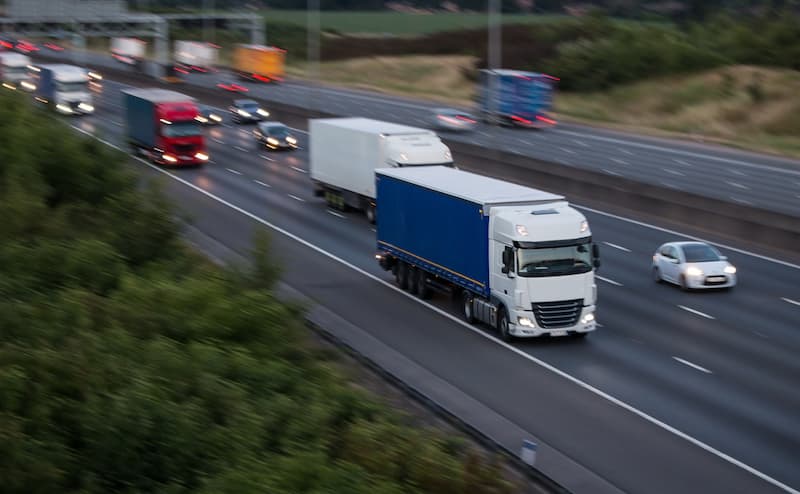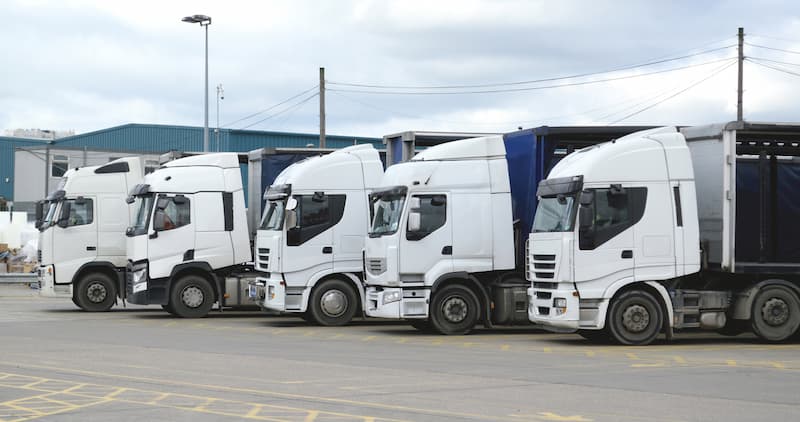Optimise Your Route to Benefit the Environment
Reducing your fleet’s impact on the environment is a crucial issue for many commercial fleet owners as the UK moves towards a green economy. The challenge with this is finding ways to improve your sustainability without sacrificing your company’s productivity with its vehicles.
Unnecessary vehicle activities contribute significantly to damaging the environment. Fortunately, there are several methods for optimising your standard operations for increased efficiency and reduced environmental impact and business expenses.
GPS Fuel Efficiency
Pre-planning routes for your drivers to take is an essential element of making each job efficient for your company. Drivers that get lost, delayed by congestion or re-routed by diversions will increase the time it takes to complete the work. These unexpected delays create several problems; firstly, your client will likely feel frustrated by the delay. Secondly, more fuel is consumed by the vehicle unnecessarily, which means it will cost more to refuel. And finally, the extra exhaust expelled will add additional impact on the environment.
GPS units in your vehicles can be pre-programmed with the most efficient routes and even include additional alternate routes as backups; therefore, make sure that your driver will arrive within the deadline and use less fuel. When fleet managers work with repeat jobs, they will find a route that works and stick to it. Routes should be analysed regularly for fuel efficiency to see if a superior alternative will save fuel.
Onsite Fuel Stations
Regardless of how efficiently your route is planned, it can always be impaired when your driver needs to visit a public fuel station. These required fill-ups expose your driver to long queues and extra delays as these stations will rarely be conveniently placed on the driver’s intended route.
By eliminating this need, you can refine your driver’s routes even further with greater control and create routes with the most fuel efficiency possible. You can achieve this by investing in an onsite fuel management system for your commercial fleet. This will be the combination of the following:
Investing in these will provide your drivers with a private fuel station at your home facility. As a result, they can fuel up with what they need for their planned route with the right amount of fuel assigned to them by their manager. This improved fuel management method provides increased control over fuel usage and reduces the amount wasted and the overall environmental impact.
Eco-Friendly Driving
When planning your fuel and efficient route, it’s time to think about efficient driving methods. Eco-driving is a selection of skills designed to lower fuel use, lower carbon emissions from the exhaust, and even reduce the chance of accidents—all positive additions to a commercial fleet’s operating methods.
Driving smoothly helps reduce fuel use. Excessive braking and accelerating will use for fuel and create a more dramatic driving experience on the road. When drivers use their road experience to anticipate changing conditions, they can drive more smoothly and improve their efficiency. They can also use the natural terrain to help achieve this; rolling downhill without the accelerator will deactivate the fuel switch and stop usage until they use it again at the bottom.
Tracking Telematics for Analysis
Embracing technology is a way to provide your fleet with many new opportunities to drive more efficiently; one of the most impactful is telematics. Telematics combines telecommunications and informatics, where vital data on your assets and drivers will be shared wirelessly so you can make informed decisions and plan effectively.
GPS telematics doesn’t just help you monitor the location and performance of your drivers whilst they are eco-driving. This data will be invaluable to track the success of your attempts to limit your environmental impact whilst not limiting your productivity.
Investing in AdBlue
Once you have optimised your route planning and driver attitudes, you may have done everything possible to lower your fleet’s environmental impact. Still, there is another area to explore, the fuel itself.
AdBlue is a fuel additive used by many commercial fleets to reduce exhaust’s environmental impact. It is a cost-effective solution proven to have a measurably positive effect which is why it has been made a legal requirement for large-scale HGV fleets. The results are so impressive that additional commercial vehicle owners choose to invest in it optionally.
When this clear liquid of urea and deionised water is injected into the SCR (selective catalyst reduction) in an HGV’s exhaust system, it creates a chemical reaction that breaks down the harmful mono-nitrogen oxides expelled.
Diesel is a common choice for commercial vehicles, and by investing in AdBlue pumps and tanks, you can dramatically improve the sustainability of your daily operations with very few changes to your current methods.
Onsite Fuel Systems
At Fueltek, we specialise in designing, manufacturing and installing bespoke onsite fuel systems for commercial companies. With our complete fuel management package, your business will be well-equipped to optimise your operations for reduced costs and improved sustainability. Contact us to discuss the needs of your fleet and discover how we can help.











